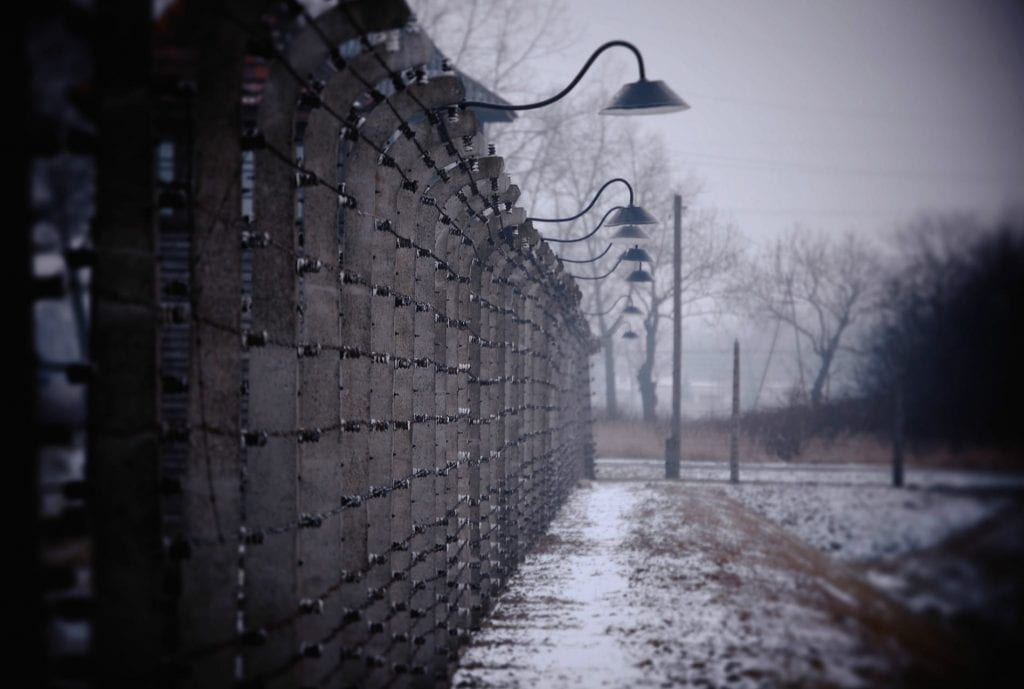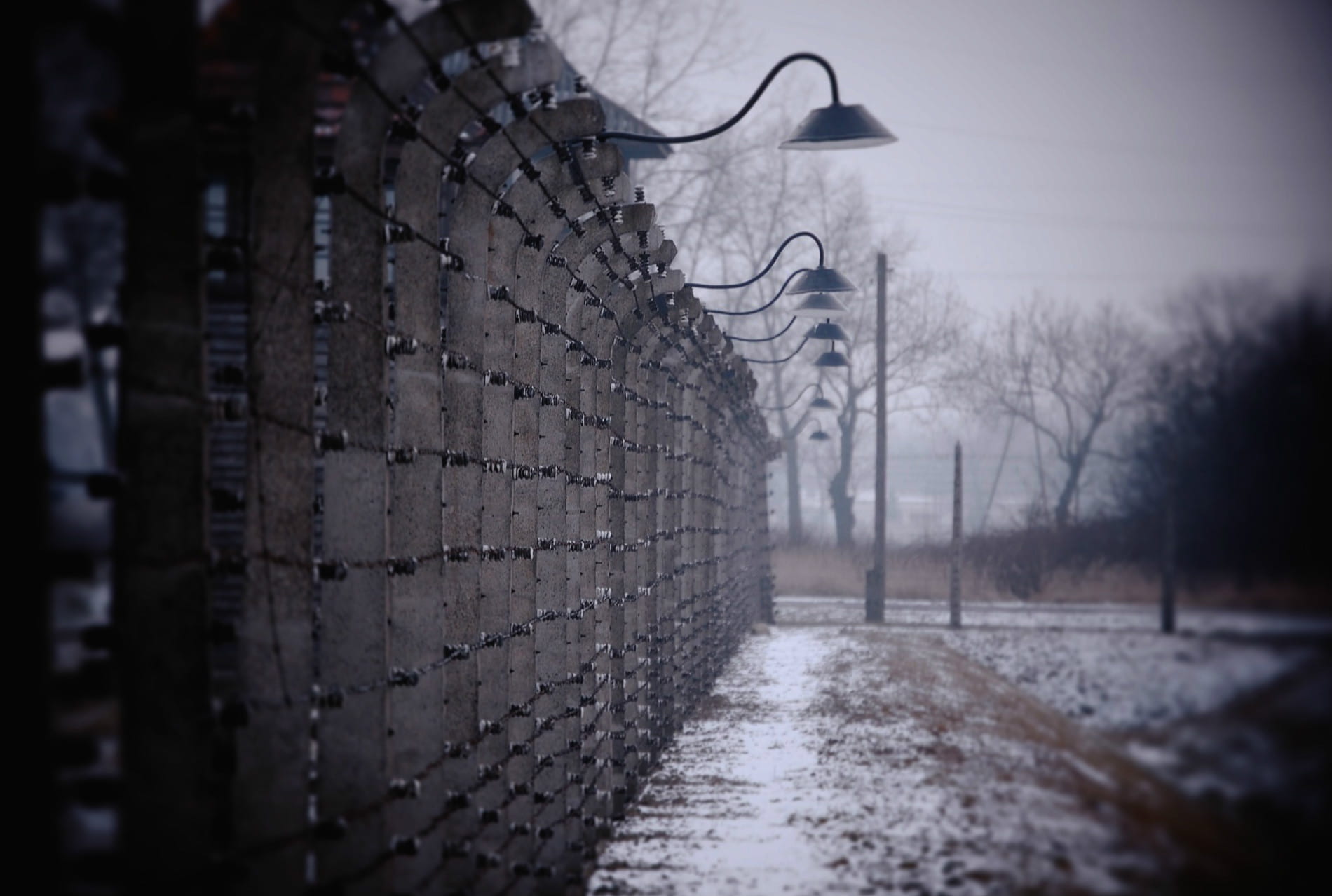
I was enthused and a bit trepidatious when professor Madden-Lunsford announced we would be attending, as a class, the lecture of a Holocaust survivor and an African American woman whose father had been lynched when she was a child. I knew their stories would be both amazing and difficult to hear.
During my undergraduate studies in the early 90’s at Auburn University at Montgomery, I took a history course on the Holocaust. Before the course I had considered myself knowledgeable of the Holocaust. I discovered how ignorant I was when I learned of: the depth and breadth of the brutality and mass murder; the willing collusion of many nations and millions of people; how many nations including the U.S. denied sanctuary by not increasing immigration visas; how entire educated societies and cultures readily accepted the expansion of racism and anti-semitism to point whole scale genocide without question, because it fed their fear and anger; the discovery that if a group can be successfully scapegoated almost anything can be done to them, with little resistance, because to defend a scapegoat with logic and reason is to become a scapegoat. The most shocking discovery for me was that despite mountains of irrefutable evidence, the number of Holocaust deniers was growing. The knowledge I learned in that course changed me permanently and profoundly. I lost much of my faith in mankind. For a period of time during and following the class I suffered recurring nightmares.
Before entering the class I had naively believed that such an event could never happen again. I now know that not only could it be repeated, but that it has, in Cambodia, and most recently Sudan.
However, I also discovered that individual human courage was boundless and that miracles large and small happen. That was where my last personal seed of hope took refuge.
It is with this background and knowledge that I intellectually looked forward to, and was emotionally apprehensive of, hearing Riva Hirsch and Josephine McCall speak. I knew that these women were and are courageous. I wanted to be near that courage and learn from it.
Riva is a force of nature. She spoke of her own miracles; being found in Ukraine by people who spoke German and because of her Yiddish background being able to understand them (She referred to Yiddish as Jewish and I hoped that didn’t confuse too many people in the audience); the guard not looking underneath the carriage where she was hiding during her flight to safety; being hidden by a nun, who also spoke German, and that nun paying the ultimate sacrifice for helping her. When she spoke of being all alone in the forest, battling malnutrition, typhus, malaria, and hordes of lice, I knew she was made of far sterner stuff than I.
Riva spoke of her father’s business and how her family and his workers were a close knit group, an extended family before the war came to the Ukraine. Yet, for fear of putting themselves and their families in danger, these workers shut their doors to Riva and her family during their flight. Only one offered temporary refuge and only after Riva’s mother gave him all her jewels. As Riva spoke, so many of the atrocities I had learned of in that Holocaust course came back to the forefront of my mind. My faith in mankind was eroding again.
Though I had girded myself for Riva’s story, Josephine, was like so many neighbors, coworkers, and friends I have known over the years. I had heard voices like hers over countless retail counters, through back screen doors and hollered from front porches. Her soft Blackbelt accent lulled me into a sense of comfort.
Riva’s story had taken place in WWII era Ukraine; a place I had only known through books and movies. But, I am familiar with Lowndes County, Alabama. I spent my childhood in neighboring Montgomery county. I had crossed Lowndes county many times on both the Old Selma Road and Highway 80. I knew the upper echelons of white society in Lowndes county were mockingly referred to as cornbread millionaires. They lived in antebellum mansions full of antiques; they were land rich but money poor. So much so, that if you went to their homes for supper, the only thing they could afford to serve in their heirloom china and silver was cornbread and beans with hog meat. I had heard it discussed that this facade and lack of resources made whites in Lowndes County particularly brutal in their treatment of black folks.
I am well steeped in the culture and nuances of Southern race relations. Though my experience of it is as a white male, born in 1964. This was the first time I had heard someone speak personally of the loss of a family member at the hands of open, socially sanctioned racist. I was surprised to learn that lynching was defined as death at the hands of three or more people and was not limited to death by hanging. I should not have been as surprised, as I was, when Josephine informed the audience that indenture (the practice of holding someone on your land as a laborer if they owed you a debt, essentially de facto slavery) was still enforced by they law in Lowndes County in 1947.
Josephine stated that her father, Elmore Bolling’s crime in the eyes of white men was that he had succeeded and purchased land, resulting in a white woman having to move off the property. Even though Mr. Bolling helped the women move and found her exactly the accommodation she wanted, his actions still constituted a crime against an unwritten social code, punishable by death.
I knew whites who thought this way, including many within my own family. They believed that all black men were lazy and stupid. Therefore, if a black man succeeded and had wealth, he must have cheated a white man or had help from interfering Northern whites and/or the Federal Government, which was the same as cheating a white man.
That was what was most disturbing for me about Josephine’s story. Her father’s murderers could have been friends of my grandparents or distant relations. Many people within my family were certainly capable of such a crime. Even the more moderate older family members believed that if a black man was lynched he must have done something stupid to put himself in harms way.
Both Riva and Josephine talked about how we must continue to speak up and talk about such atrocities and not let the deniers corrupt history and attempt to repeat it. Silence is the enemy of justice.
My lack of faith in mankind was growing. I wondered if speaking out was enough. The attitudes of many whites I know, especially those young enough to know better, is still shockingly racist. Just this week, I spoke with a friend who teaches high school English. She was distraught because a student had turned in an essay that was essentially a white supremest manifesto. The student was not a child on the fringe but rather a well liked person very popular in the high school social structure. I am often gobsmacked when I hear well educated white colleagues use the N-word, assuming I am as racist as they. I looked around at the audience in attendance and found them to very simpatico with the Riva and Josephine. The people who most needed to hear the speakers were not there. Just last night the local CBS news reported that according to the Anti-defamation League, anti-Semitic incidents were at a twenty year high. Up 47% in just the last two years.
I am honored to have heard Riva and Josephine’s stories and bask in the presence of their courage. I will speak up and continue to seek to root out my own internal vestiges of racism.
I spoke to Josephine after the presentation. We chuckled about Lowndes County’s cornbread millionaires. She told me where her father’s historical maker, that she had worked so hard to get erected, was located in Lowndesboro, just two hundred yards from the yellow flashing caution light. I knew the spot.
I spoke of my racist father who carried a badge and a gun for the Montgomery police force for twenty-five years and then twenty years more as an Alabama State Trooper. I told her, with dismay, of my father’s braggadocios, I heard as child, after he had a few beers. He told how he and his friends in high school would lay in wait in the dark, to catch the black men walking to town along the railroad tracks on Saturday night to visit their wives or girlfriends who were domestics and nannies in town. They subjected these men to humiliations and tortures. Their favorite being to strip them of their clothes and put them in the trunk of a car. They would release them naked on the highway, hands bound with lit firecrackers tied to their ankles and backside. My father always smiled with glee when he told these exploits. Josephine, compassionate and understanding of my grief over having such a father, clasp my hand and nodded. She was familiar with these kinds of events.
I left the lecture remembering that in my youth, in the seventies and eighties, I had believed by now we, as a society, would have a more level field of justice and opportunity for all, and that hate crimes would become fewer and fewer as society became more enlightened and heterogenous. However, as I walked to my car, a fear chewed at me. Was the leveling so many had fought for, and were still fighting for, beginning to slope again, becoming muddy and slippery, rising in elevation to the disadvantage and injustice of minorities? Will there be enough voices speaking up to again seek a leveling? History does not make me hopeful.
Leonard Lee Smith holds a Bachelor of Arts in Theatre from Auburn University at Montgomery. He is a non-degree seeking graduate student in writing at University of Alabama at Birmingham. He won a Hackney award in 2012 for short fiction. He has told stories for The Moth Radio Hour

